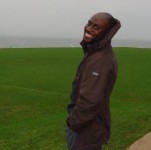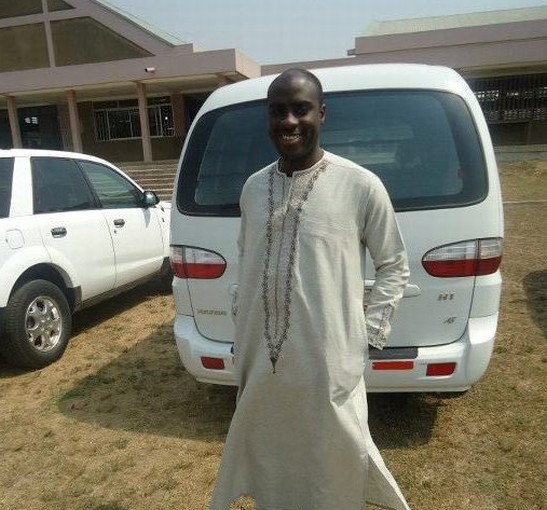Sam Oguah talks about his time studying in Flensburg

He has just finished what many DAAD scholarship holders still have before them – a study-stay in Germany. Sam Oguah from Ghana is an electrical engineer and studied in Flensburg from February 2011 until September 2012. In October 2012 he starts an internship at the World Bank as part of the Carlo Schmid Programme. In this interview he talks about how to make the most of your study programme.
Sam, how can I benefit from studying in Germany?
People coming to Germany to study come to a modern and open-minded country. It’s important to be aware of this from the start. Students definitely benefit from this cosmopolitanism and the breadth of what Germany offers in terms of culture and academic programmes. It’s a great opportunity to build up your personal network. You meet not only people from Germany, but people from all over the world. The more active you are, the better.
Is it necessary to be able to speak German?
No, but it makes the everyday things easier if you do. My German really improved when I helped organise the Millennium Express workshop in Flensburg and had to handle organisational matters in German.

What were some of your most memorable experiences in Germany?
I had always considered myself a tolerant person – until my programme brought me together with people from other parts of the world. My tolerance level was really put to the test. Over time my attitudes changed. I no longer have problems accepting the viewpoints and behaviour of others. This comes to me much easier now. I really learned a lot about myself, my attitudes, the way I act and the way I see others.
Any other things leave a lasting impression?
Yes – the environmental awareness of the people! The Germans do a lot when it comes to protecting the environment. And they go about it in a very perfectionist and efficient way – this was absolutely astounding. It’s the small things that really amazed me, like breaking down a cardboard box before putting it in the paper bin in order to save space.
I also had a somewhat awkward experience with sports. I always saw myself as an athletic type – until I hit the fitness gym in Germany! I couldn’t even do the simplest exercises. That made me all the more ambitious and I really went for it. I did lots of sports during my time in Germany. I’ve bought myself a bicycle in Ghana so I can ride as much as possible.
You helped organise the workshop in Flensburg. What tips can you pass on about organising an event like that?
My number-one tip: Begin with the organisation early! Especially in Germany, where it is completely normal to plan an event from start to finish a whole year in advance. My tip is to begin organising the event at least a half year before it is scheduled to happen. I noticed that it’s much easier to speak with the people directly on the phone than to write an e-mail. Mails are often left unread or put aside for later. The phone, on the other hand, gets you results right away.
Do you have any tips for workshop participants?
One very important thing: Workshop participants should not sit passively and just listen. They should participate actively in the workshop. It’s important to strike a good balance between lectures and proactive participation. The workshop is a great opportunity to learn new things and exchange experiences. You can even dialogue with the larger public, for example, with an information stand in the city or a quiz game for school kids. Take these aspects into consideration and the workshop is bound to be a success!





